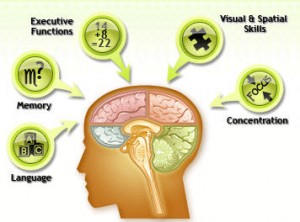There is a lot of debate regarding how video games influence our brains development and whether or not games are beneficial or damaging. Scientists have examined both sides and the question that needs to be answered is whether games are beneficial or they are transforming us into machines.
credits: http://guardianlv.com/2013/08/researchers-develop-mind-control-using-the-internet-video/
Some studies show that prolonged exposure to video games has negative effect both on the body and the brain. Games decreases attention span, increase the risk of obesity and violent games decrease sensitivity towards aggression. The implications are troubling since decreased attention implies lower academic performance and obesity is a health risk factor. Furthermore it is shown that decreased sensitivity towards aggression not only makes us consider aggressive behavior acceptable but it also increases the chance that we will become aggressive.
credit to: http://yoursinglesourcefornews.com/ academics-debunk-theory-linking-violent-video-games-with-aggression/1379/
Another fact that must be considered is repetitive tasks in games. Because there are lots of games that become repetitive and have reward systems that encourage that behavior gamers are exposed to lose of creativity. Since repetitive tasks are better suited for a computer we could ask ourselves if our mind is encourage to become a basic processing unit.
However, there is another side of games which was investigated by researchers and the findings encourage people to become casual gamers. The benefits from games are as follow: better cooperation skills, adaptation to new challenges, fast reaction time and better attention to details.
credits: http://www.jklmgames.co.uk/how-games-can-train-the-brain
Besides the standard types of games we should also consider games that involve movement (e.g. some Nintendo Wii games) which are shown to motivate exercise. Those type of games should become encouraged in populations with increased risk of obesity, where the reward system should be tailor for the customers.
The tricky part of the games is the reward system which acts as a drug since it releases dopamine which is the hormone for excitement. Using this we can develop games that can stimulate people to learn and train. A study done on surgeons showed it is possible to increase job performance via gaming. Here is a TED talk about games and how we can use them to construct a better world.

Based on what we seen so far casual consumption of non-violent games have beneficial effects, however one must take extra care since crossing the line and becoming an addict can severely impact us.
Radu Nesiu



3 responses to “Brains and games in 21st century – How do video games affect us?”